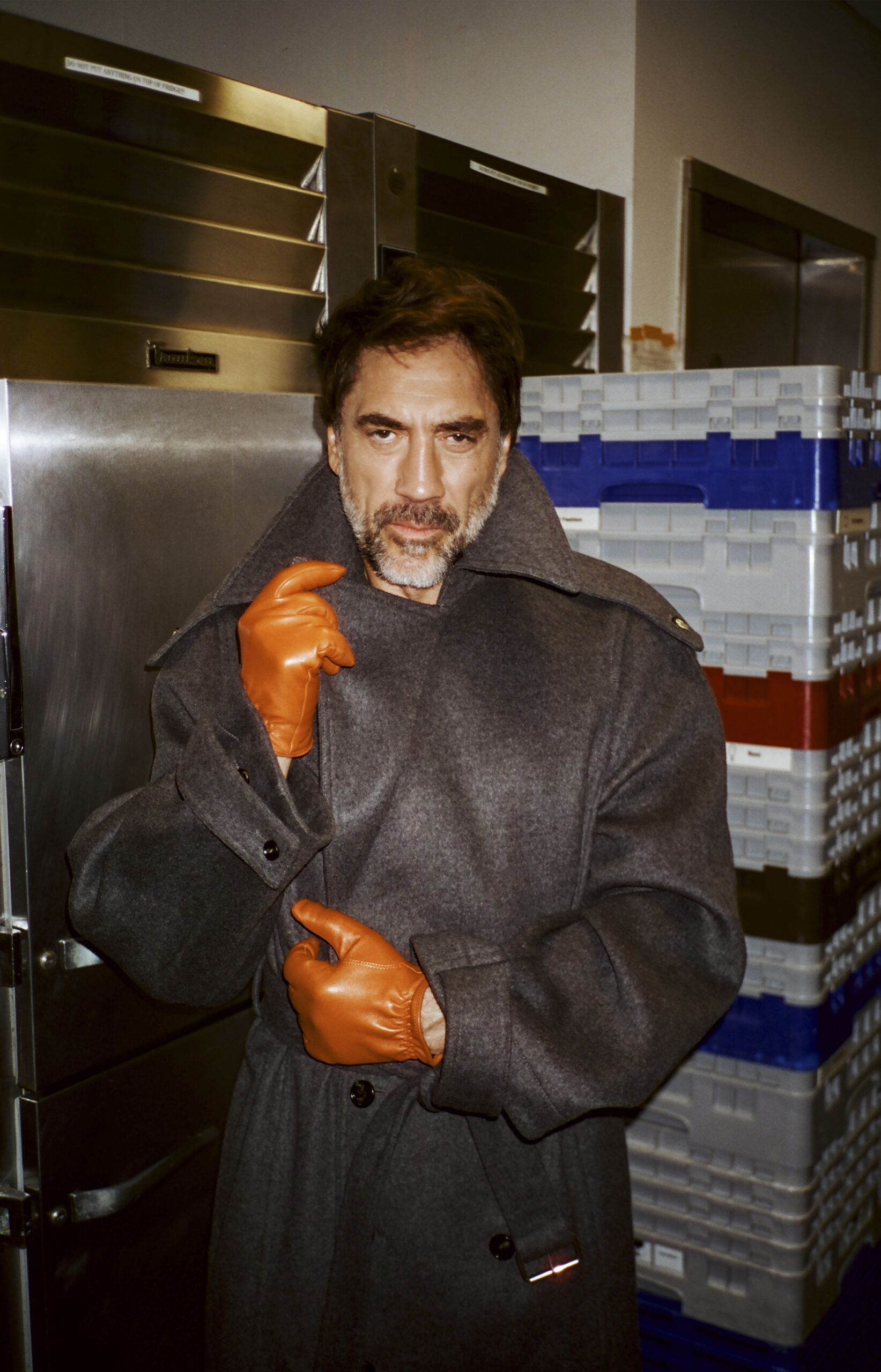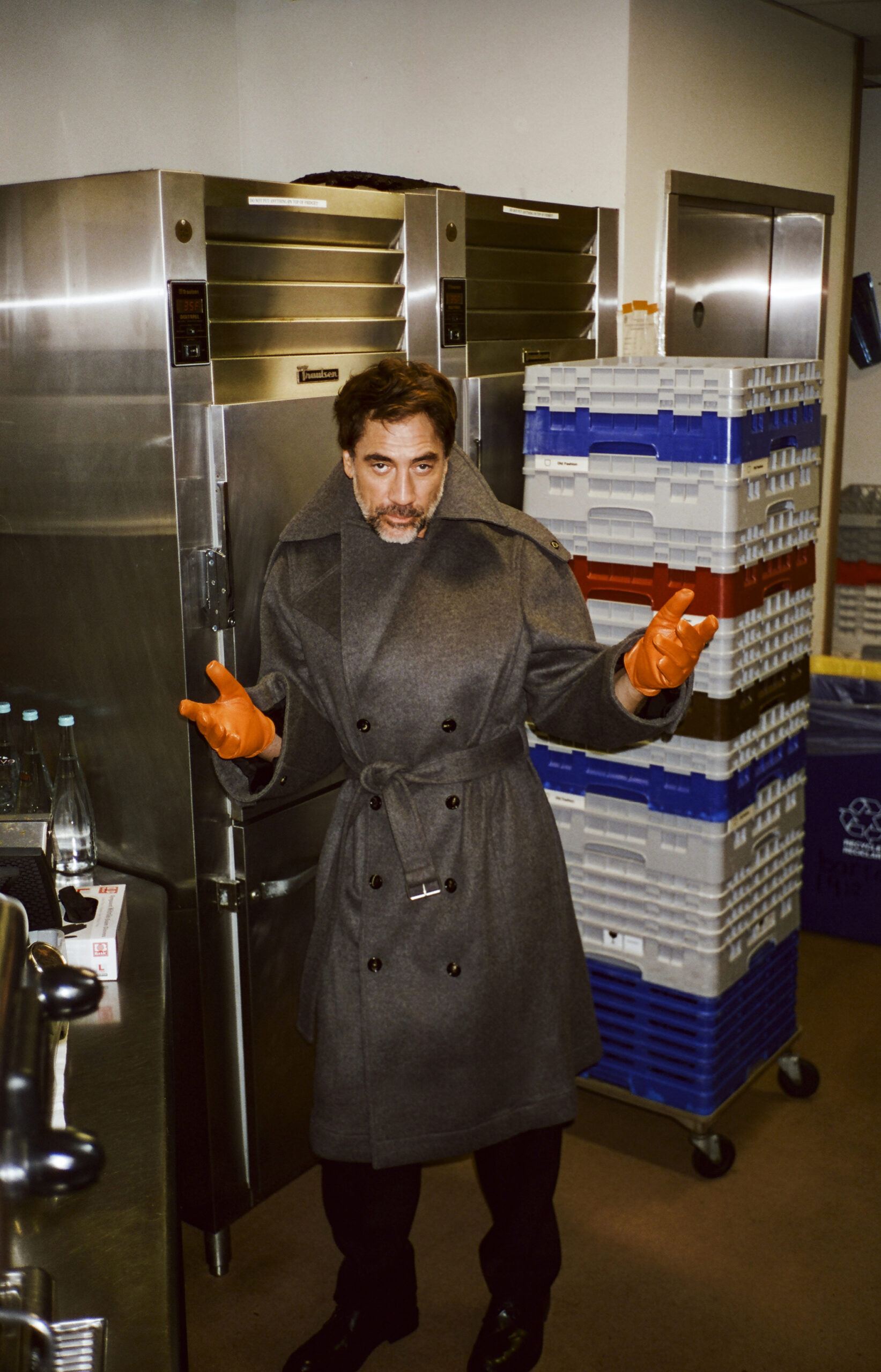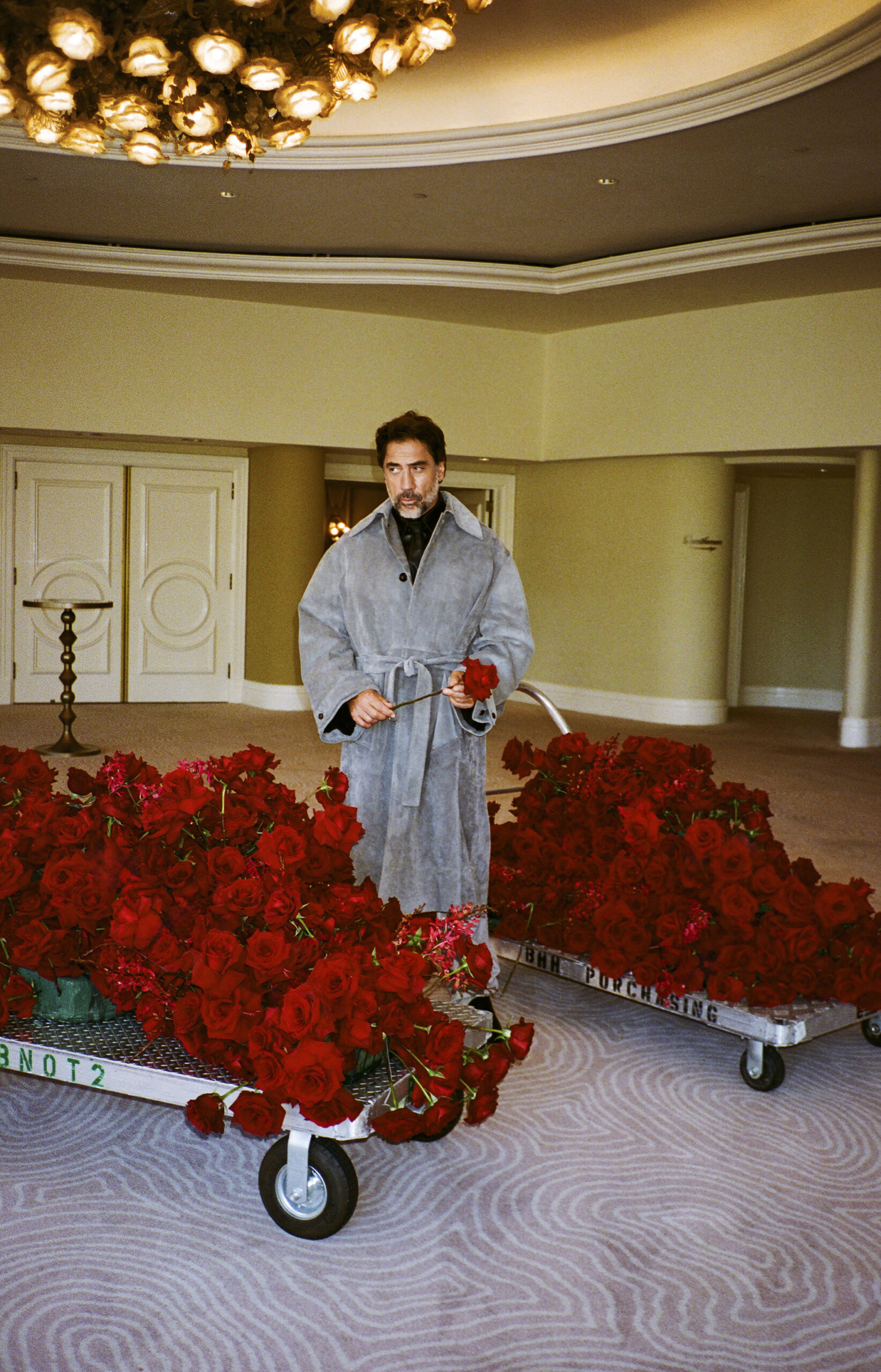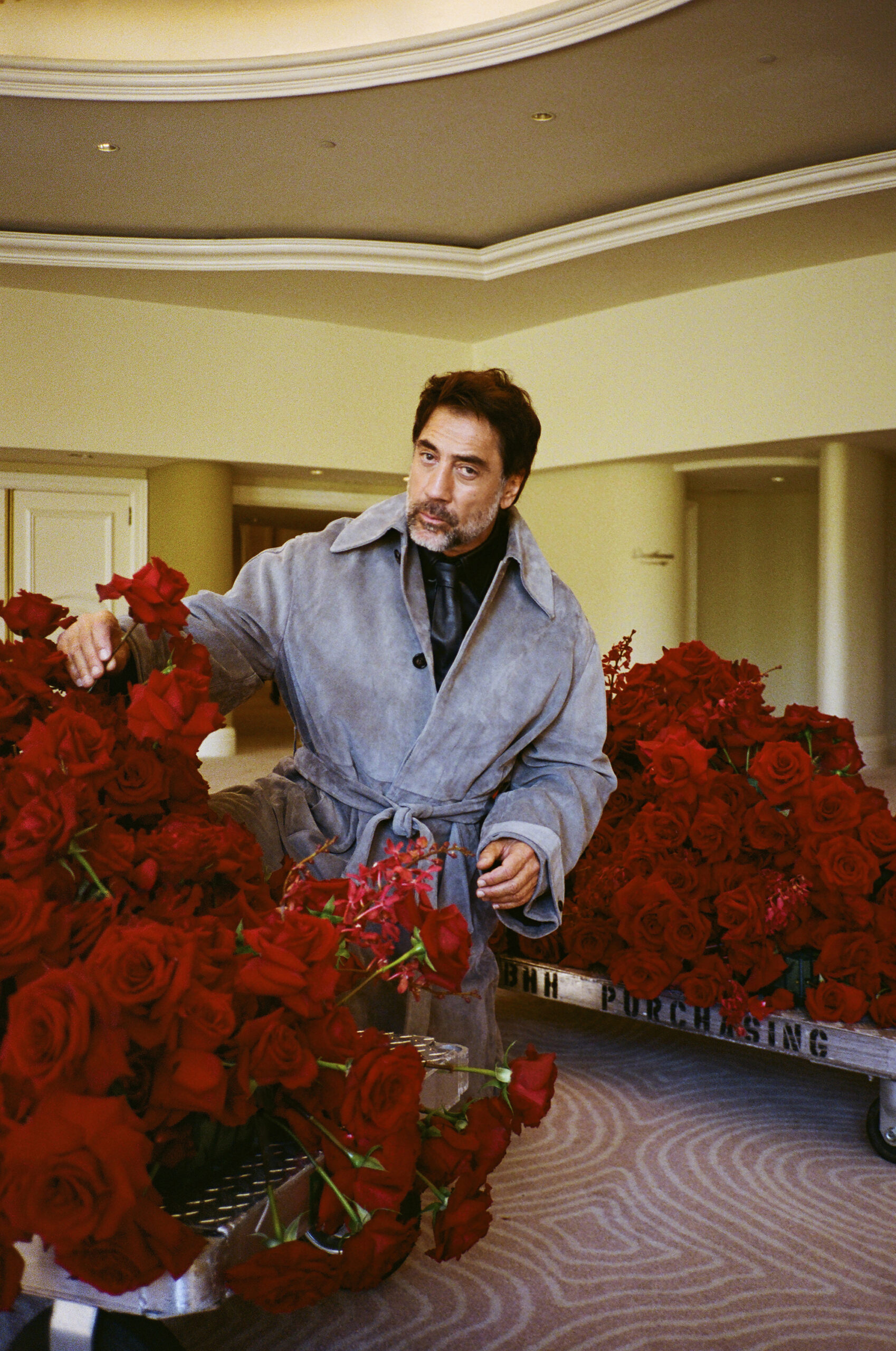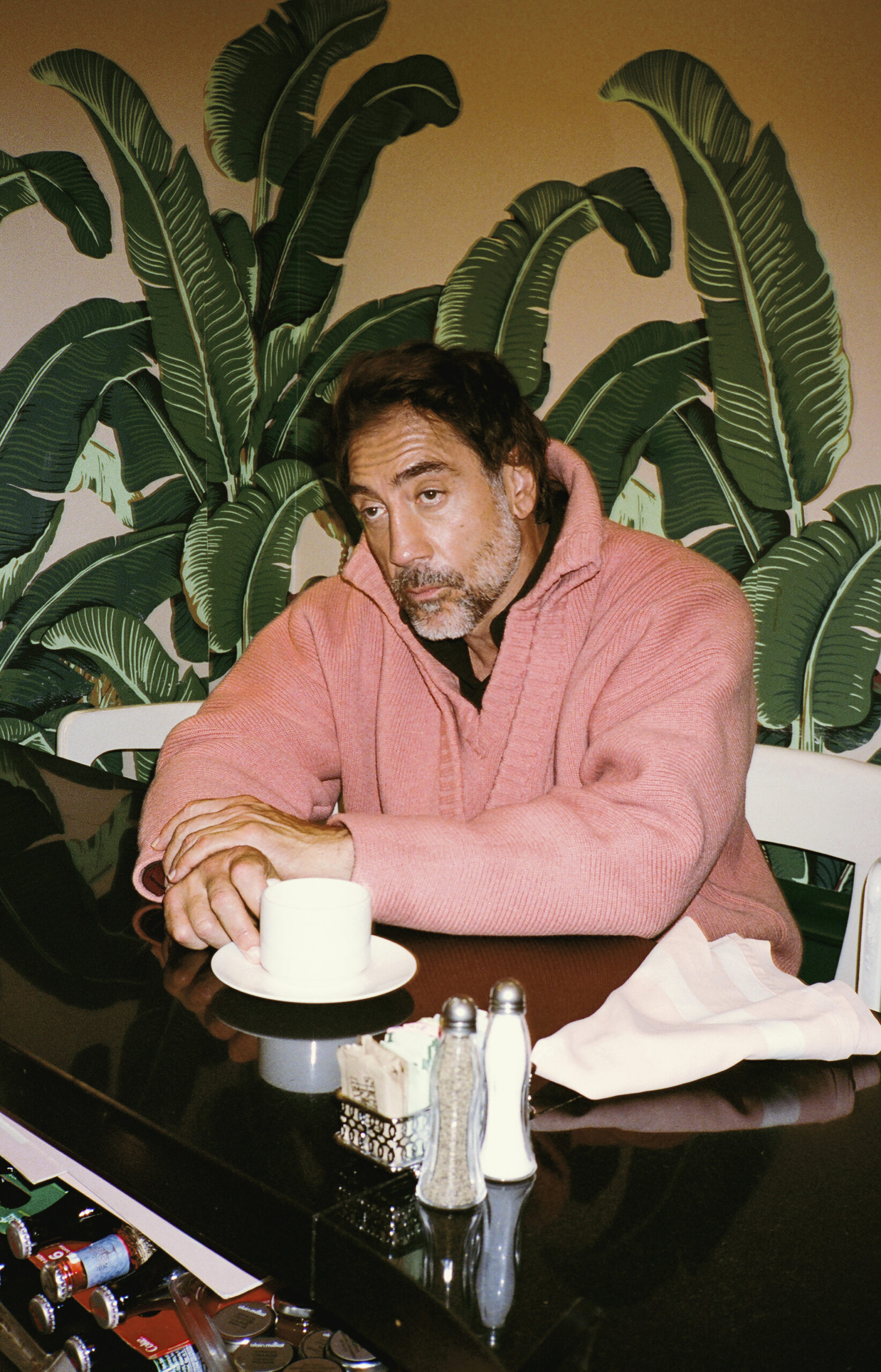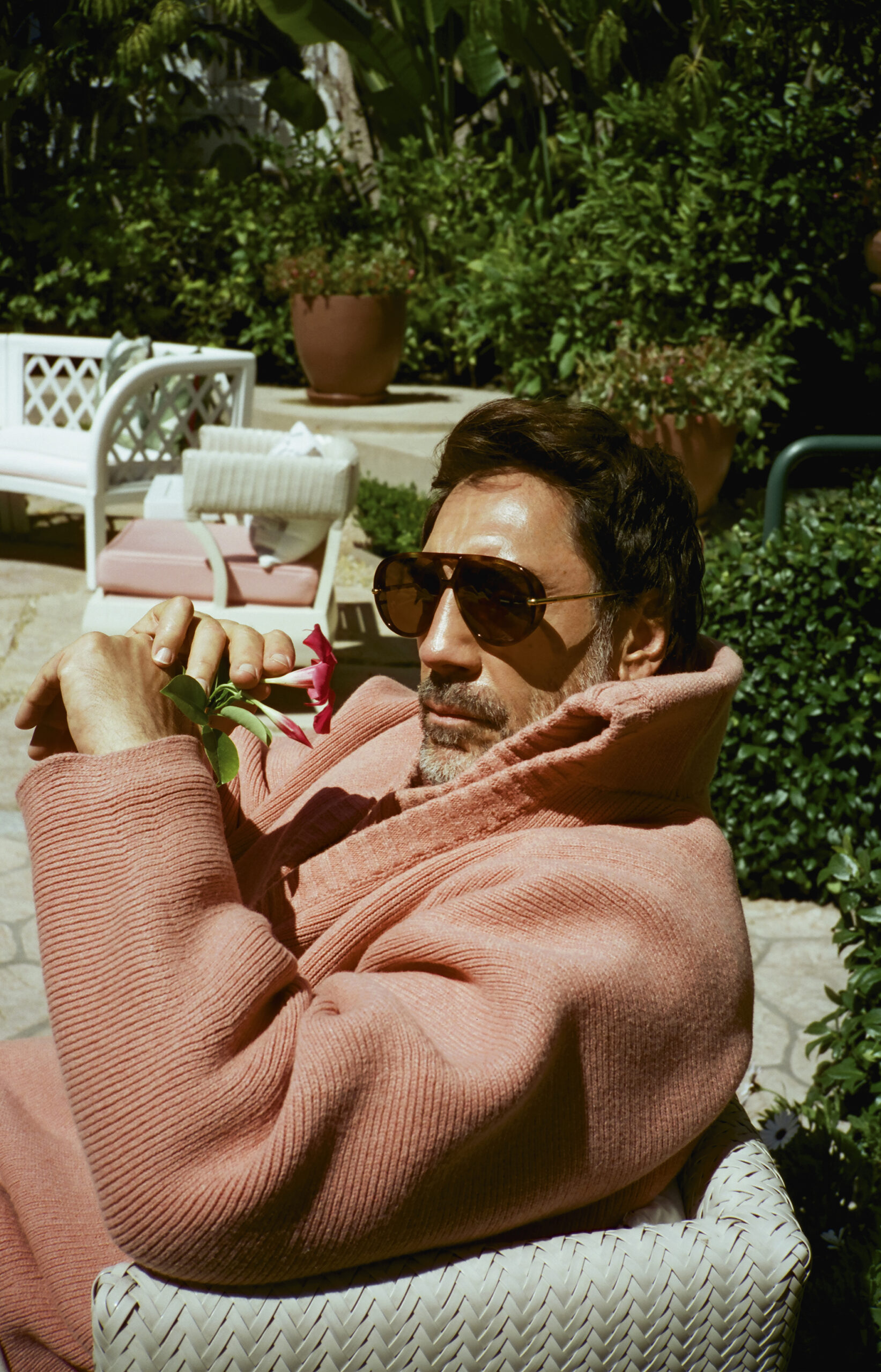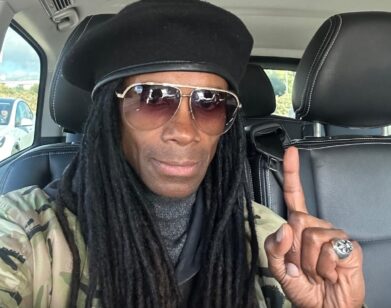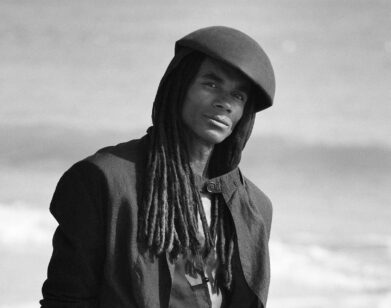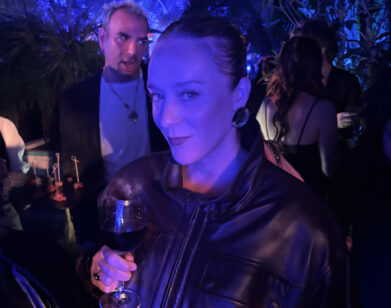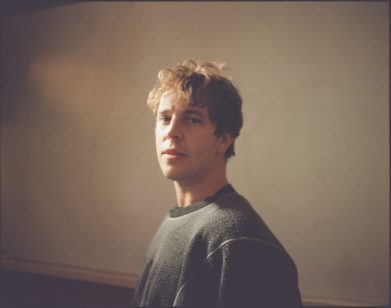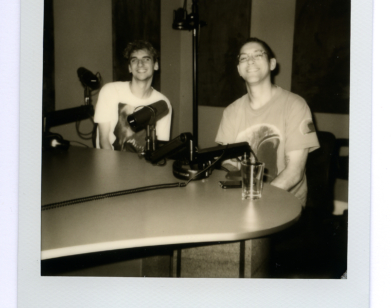ICON
“Have I Done Something Bad?”: Javier Bardem, by Richard Gadd
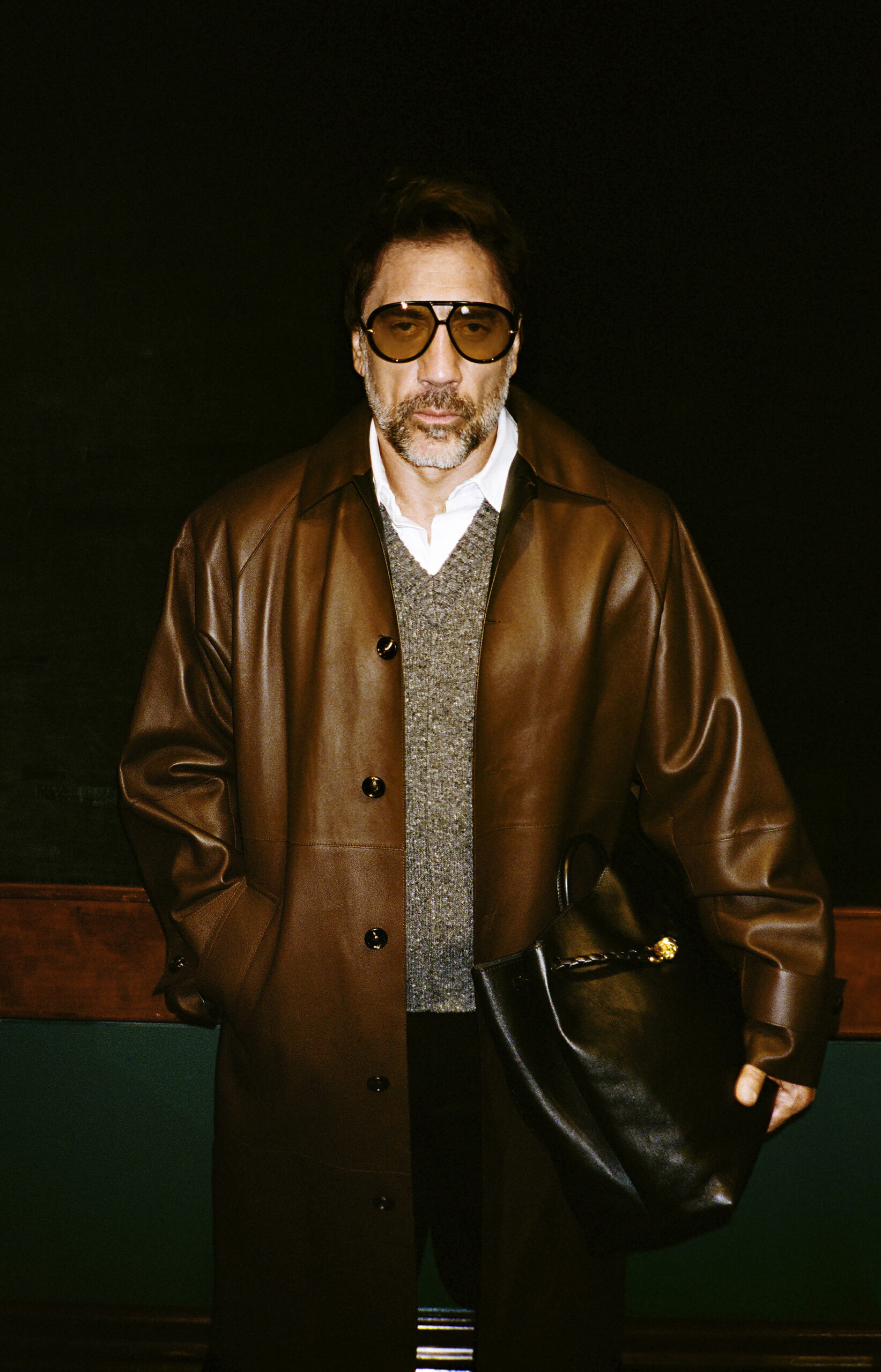
Javier Bardem Coat, Sweater, Shirt, Pants, Sunglasses, and Smooth Leather Andiamo Bag Bottega Veneta.
What is a nice guy like Javier Bardem doing being so bad? The Spanish actor has played plenty of softies—poets, painters, freedom fighters, and hopeless seducers—in his three-decade international career. But it’s his ability to crawl into the skin of a psychopath that springs to mind when thinking of his most iconic roles, particularly the terrifyingly calm, serial-killing hitman in the 2007 Coen Brothers neo-Western No Country for Old Men, which won him an Oscar, or his disfigured Bond supervillain in Skyfall. Now, Bardem, who’s had a big year with Dune: Part 2 and the animated movie Spellbound, can add a third feather to his maniac cap with last fall’s release of Netflix’s true-crime drama Monsters: The Erik and Lyle Menendez Story, in which he played the brutal, abusive, and ill-fated L.A. music-exec patriarch José Menendez. It can’t be easy to sit with such villains for the duration of a project, but off-camera, Bardem may be one of the kindest and most down-to-earth guys imaginable. Just ask Baby Reindeer creator and star Richard Gadd, who called him to talk about staying grounded amid the chaos.
———
MONDAY 6:30 PM OCT. 28, 2024, MADRID
JAVIER BARDEM: Hey, Richard! It’s such a great honor to meet you, man! What an amazing artist you are!
RICHARD GADD: No, this is surreal for me! I couldn’t believe it when you asked me to do this. I was so chuffed. I’ve followed your stuff for so many years, so it’s an absolute honor for me. Whereabouts are you?
BARDEM: I live in Madrid. Where do you live?
GADD: I live in London, but I’m from Scotland originally. I have to ask, are you a Real Madrid or Atlético fan, or neither?
BARDEM: I was born in the Canary Islands and I’m not very much into football, but I’m a huge rugby fan. My brother and I played rugby for 17 years here in Spain. But my brother is also a huge Atlético de Madrid fan. My mother, whom I loved and who passed away three years ago, was a huge Barcelona fan, to the point where she would dress herself in Barcelona pajamas to see the matches and curse like a sailor. And my son is a huge Real Madrid fan. All this to say, depending on who I’m with, I’d support one or the other.
GADD: That’s probably a good way to be because I know it’s quite a vicious rivalry.
BARDEM: Where in Scotland are you from?
GADD: About an hour and a half north of Edinburgh; a little town on the outskirts of Dundee. I’ve been living in London for about 12 years, though, so I guess London’s home now. It’s all in Baby Reindeer: moving, trying to be a comedian, taking ages to get everything off the ground.
BARDEM: Man, congratulations on your success with the Emmys and everything. You obviously deserve all of it. What an amazing writer, actor, and human being you are—generous enough to share that with us. Obsession, ambition, power, love, lust, humiliation—there are so many things that are taken so seriously and are so beautifully put in the series. I have to say that the last shot is one of the most powerful endings I’ve ever seen and will ever see.
GADD: It’s crazy hearing this from you because No Country for Old Men is probably my favorite film of all time, and Anton Chigurh my favorite character. I really appreciate it. The show was done on a very small budget by Netflix’s standards, and I’m not sure anyone knew how it was going to go, but most people didn’t think it was going to explode like this. And I fought quite hard for that ending .
BARDEM: Oh, really?
GADD: Yeah, it was a big battle.
BARDEM: Wow. For me, it’s the perfect ending for the circle of madness that the show offers.
GADD: Thank you.
BARDEM: When it comes to the reason why we do this, it’s to bring the human soul, the human aspect of all of us, into a discussion for the audience. Baby Reindeer is a strong example of that. I guess I did Monsters because of that as well. The idea of trying to bring out what relates us to—in that case, the father—is for us to understand that that person who may or may not have done those horrible actions is not from Mars, he’s one of us. He is a man who is in a powerful position and was raised in a certain manner related to machismo, and had that education on what it meant to be a man, which also has to do with not being capable, or even willing, to share his trauma, his pain.
GADD: I thought Monsters was brilliant. What I loved about it was how opaque it was. A lot of the problem I have with dramas in this day and age is how much they spell it out for the audience. But Monsters posed all these questions and didn’t provide the answers. And the performances were phenomenal. Everyone plays it with this realism that’s frightening, so you are left at the end of every episode questioning where the truth starts and whether he did do these things or didn’t. And that is really good art, I think. It’s why the show’s been a massive success. And it’s created all these debates, right?
BARDEM: Yeah. To the point where now there’s this judge that is saying that he wants to go back and reopen the case. Apparently there are two proofs that were not shown back in the day that can really demonstrate the sexual abuse. And I just hope for justice to be fair. I know it sounds redundant, but we know how fairness and justice don’t go together all the time. I really think that those things that were not shown, because they were not allowed to expose the possibility of the sexual abuse in the second trial, had to do with the way male sexual abuse was perceived back in the ’90s. Or, was not even perceived, wasn’t even discussed. Like, “Those things don’t happen. And if it did happen, we’re not going to talk about it.” Which takes me back to Baby Reindeer. Because I guess now we are more able to understand that abuse goes from the more powerful to the weaker, wherever that is, whoever that is. And that doesn’t belong to gender. It belongs to us as human beings, and our capacity to hurt others in order to get our own pleasure, own needs. That’s why the eyes that are seeing Monsters and Baby Reindeer are different from those of even 10, 15 years ago. I don’t know how those shows would have been received back then, maybe not even made.
GADD: As an actor, when you played José Menendez, did you want to believe that he had done those things? Because it must be quite hard to decide which way to go, right?
BARDEM: The thing is, there’s not much material to read about him, and there’s really no video or audio, just a couple of things where you can hear and see him very briefly. And the fact that it hasn’t been proven that those things happened means half of the people say they did, and half say they didn’t. It’s known that he was tough on them: He would scream, he would hit them, he would humiliate them in public. So that I can go free with. The other things, we don’t know. So it’s my responsibility and great challenge to be like, “Okay, I have to play it on that thin line.” But that was the fun part. And if you ask, “Okay, but what did Javier think about it?” Myself, I don’t know. Sometimes I will think, “He did.” Sometimes I will go, “Maybe he didn’t.”
GADD: That was my response all the way through, which is what’s so smart about your performance, and about the show. Was there a general feeling on set? Was everyone split?
BARDEM: It was split. But we all knew that it was very sensitive material and understood that we had to not bring our opinion into any of it. And that it really brought the case into a public place now is one of those things that helps you believe that, yeah, what we do matters sometimes. The success of the show is amazing, but the fact that it has a direct impact on real life for those two people is huge.
GADD: Yeah, it’s incredible that that’s happened. That’s all you really want from a piece of art, isn’t it? To affect the world. And I think that the whole show was a master class in storytelling. I was glad we weren’t competing against you at the Emmys, I’ll put it that way. [Laughs]
BARDEM: I loved that you were wearing your kilt there, man.
GADD: Oh yeah, that was a nice moment. I don’t know whether you saw, but you know the sporran? The pouch in the front. The New York Times called it a “fanny pack.”
BARDEM: Really? Oh my god.
GADD: Yeah. And the internet had a bit of a meltdown over it. I think they had to issue an apology in the end.
BARDEM: Of course. “Fanny pack,” come on.
GADD: But it was a great evening. It was quite a surprise because I had blocked out a lot of the noise, so I didn’t really know what to expect. And it blew my mind.
BARDEM: What happened to you and your team there was one of those beautiful nights where you see how much impact your work, and in this case, something so personal, has had on so many people. And the way you earned it, the way you owned it, the whole feeling of it, was so excellent, in the sense that it was so subtle, so gentle, so generous, so caring, so intelligent in what you were saying. You made the people that really are struggling in this difficult business believe, and not in the way that we are used to hearing. I don’t remember exactly your words, but the way you expressed it was real. It was achievable. It was something that you could not only hope for, but put yourself into. For me it was like, “Wow, that man saying those words onstage deserves to be recognized.”
GADD: That means a lot. And considering my early twenties and what I was going through, it did feel like a fairy tale of some kind. To go back to something you said earlier, about whether the shows would’ve been made—it’s a good question. Because I sometimes think that 10 years ago, I wouldn’t have even dreamed of admitting any of that stuff to a friend, let alone to the world by putting it on a television platform. And it’s funny because I think a lot of men, in general, do have quite a long way to go in terms of being able to admit their feelings and those kinds of things.
BARDEM: Let me ask you this. As a man, did you receive any negative feedback from other men regarding what you’ve been through, what you shared with us?
GADD: It’s interesting because you get used to writing it down, being on set, talking about the scripts with Netflix, and it never feels real until you actually release it. But about a week before the show came out, I went into that old fear—I remember even thinking, “Will I ever be able to look another man in the eye again? Will they see me as forever emasculated?” But on the whole, people have been quite positive, and I think the positive response has actually led to a certain catharsis, almost, in that emotion. But sometimes I can still catch myself. Occasionally, people say something online or shout something in the street and it makes you go, “Is that what everyone thinks?” And I still think there is a part of me—as a man with years of growing up in an area and a time where “repress, repress, repress” was the thing—where it can be quite easy to go back into that place.
BARDEM: Of course. And it’s important to understand, Richard, that the guy that will write something nasty, anonymously from his sofa, is tired of his own limits. That person will scream at you because it’s about trying to make himself or herself noticeable to you. But beyond those things that we have to deal with, the fact that you’re saying this is so uplifting and encouraging for people out there. We are so afraid of what is going to be people’s response. Are we going to be liked? Are we going to be denied? And the way you’ve received love and respect for what you’ve done as a human being, and for expressing it the way you did, which is with art that speaks volumes, is beautiful to watch. A very important way for us to keep on moving forward is to talk about things and not be shy about it. Before my time, there was nobody speaking out loud about certain things. So of course I was so scared to bring out those things, like, “They’re going to slap me in the face.” And yeah, sometimes they did. But then you realize, “If I really want to respect myself, I have to be loyal to who I am. And that thing is part of who I am, so I have to show it.” And those who really are capable of feeling empathy for another human being will feel it. I think most of us feel empathy for others—the bad people make a lot of noise while the good people just do a good job in silence.
GADD: I totally agree. When you got into acting, did you ever find that it was almost like a release of all the emotions you couldn’t speak about?
BARDEM: Absolutely. But I had a lucky card under my sleeve, which is my mother and grandparents and great-grandparents were actors. So I’ve seen since the day I was born that it’s okay to express your emotions. It’s okay to get sad. It’s okay to be loud. I would have to deal with some other stuff, as a kid raised by his mother alone, with an older brother playing the father, who was absent. Do you have anybody in the family that worked as an actor, a comedian?
GADD: No, no. My dad was an academic and my mom worked various different jobs. And the school I went to wasn’t the greatest in the world, but the drama department seemed to really care. I remember my two teachers—I look back on it and think how badly behaved all the kids were and how it’s a tough life being a teacher, but they really tried and gave me a lot of confidence.
BARDEM: How valuable is the work of a teacher, huh? I feel the same for a teacher I had when I was younger. I was not a good student at all, and he was the only one that would pay attention to me as somebody that needed caring, love, support, and the presence that I didn’t have because my mother was working and my father was not there. Now today I have two kids, and we are more aware of how important it is to be present. Sometimes we are way too present in their lives. [Laughs] But that teacher was kind of a revolutionary back then, where he was like, “No, this kid needs to be seen and heard.” And I will always remember him for that.
GADD: Are you still in touch with him?
BARDEM: No, I wish. I went back to the school once when I was kind of famous already, and I wanted to go to the different places and corners where I would be able to feel that experience again. But since I was famous, they were all over me and I went like, “Shit, I have to go back one day with a mask on.” [Laughs] How has fame and the public treated you? How do you cope with all that?
GADD: Well, it was crazy because it was almost overnight with Baby Reindeer. The show just exploded. I don’t know how big it is in other countries, but certainly in the U.K., by now most people have either watched it or definitely heard of it or me, and as a result, your whole life has to change. People do now come up to me almost every time I go out to ask for a photo or speak to me, but even if they don’t, I became suddenly aware that most people I pass recognize me. Even if you get on the Tube or the bus, I just have to think about that. So if I’m traveling around London by myself, I feel very exposed. It’s a jarring adjustment. Do you remember what it was like?
BARDEM: For me it was slower, because I started to do movies when I was 19 or 20. But yeah, when I was 21 or 22, this movie Jamón, Jamón came out and there was a shift. Those were the times—’92—where a movie would stay in the cinema for a year, and there were not so many movies, unlike today. And in Spain they would open Spanish movies— I would say 15, 20 the most. So being in the one that made the most noise was a huge thing. So then I was like, “Wow, this feels good. People recognize me. I’m important.” You start to take advantage of that. You go to the clubs, they give you a drink, the girls come and talk to you. But then you start to see that everything’s fake. Everybody wants something from you. And you start to protect yourself and isolate yourself because you understand that nothing’s natural anymore. Nothing is organic anymore. Nothing. Nobody. They don’t behave with you the way they would with somebody else. And it’s tough to adjust yourself to that, especially when you’re an actor, because we’re looking for truth. We are observers—we need to observe behaviors, actions, ways of speaking, personality traits, but none of that is possible when you’re the one being observed. So it’s challenging on a personal and professional level. But funnily enough, in Spain, yeah, my wife and I are recognized, but I guess they’re used to that, so they leave us alone.
GADD: Oh, that’s good. So you get peace? I thought you’d both be mobbed en masse every time you went out.
BARDEM: Personally speaking, I’ve never felt anything but love and gratitude and joy and fun on the streets. And that’s why we live here, because we feel like we are among our people.
GADD: That’s really nice.
BARDEM: But it’s unnatural, as you know, to be on the Tube or the Underground and see that everybody’s looking at you. Well, maybe not anymore, because now everybody’s looking at their cell phones, so it’s a good thing. [Laughs]
GADD: That certainly helps. But yeah, I’m sure I’ll get used to it in time.
BARDEM: Just don’t fight it. It’s something that you cannot win over. That’s the way it is, and it’s also a good sign in the sense that you’re recognized for something that you do and love. It’s not because you’ve been arrested for doing something wrong. But sometimes we feel that way, right? We feel like, “Have I done something bad?” Because people have so many opinions about what I do or what I am.
GADD: Yeah, almost all the time I’m like, “Why are they looking at me? They hate the show. They hate something I’ve done.” It’s just been mad.
BARDEM: You’ll get used to it. And hopefully you’ll be known and recognized until the day you die, my friend, because that means that we keep on working.
GADD: Yeah, maybe I should go out a bit more, just make sure my face is out there. [Laughs]
BARDEM: [Laughs] “Hey, I’m here, motherfuckers.”
GADD: [Laughs] I’ll carry a big sign or something. But yeah, fingers crossed. Again, it means so much that you asked me to do this.
BARDEM: And it means a lot to me that you were willing to do it, because I admire you very much as a man, as an artist, as a partner in crime, in the sense that we do what we do and we share that. I’m here for you, my friend. If you come to Madrid, you know where to get me, okay?
GADD: And if you’re in London, definitely give me a shout.
BARDEM: I will.
GADD: We can go in the Tube and see how many people recognize us. [Laughs]
BARDEM: [Laughs] Yeah, exactly. Who’s more famous?
GADD: You’ll win for sure. [Laughs] It’s been a pleasure.
BARDEM: Hopefully we work together one day. I would love to.
GADD: That would be amazing.
BARDEM: If there’s a Spanish guy with a thick accent in any of your shows, please think of me, alright? [Laughs]
GADD: I’ll start writing something now, actually.
BARDEM: That’s what I wanted to hear!
———
Grooming: Kim Verbeck using Jillian Dempsey at The Wall Group.
Photography Assistant: Cesca Coppola.
Fashion Assistant: Nat O’Campo.
Production Management: Vince Barrucco.
Post Production: Alex Hainer.
Location: The Beverly Hills Hotel.

